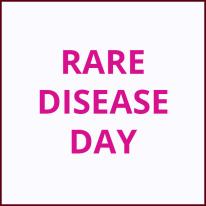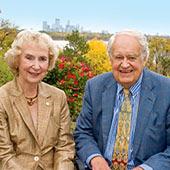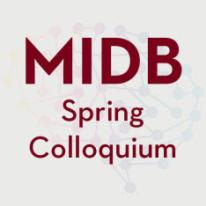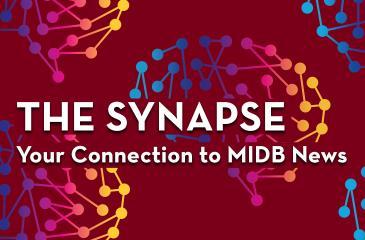The Synapse: Feb. 2023
A National Leader in Screening All Newborns for Congenital Cytomegalovirus
Last week, Minnesota became the first state in the nation to begin screening all newborns for congenital cytomegalovirus (cCMV), a common viral infection that can have serious health effects for children if not detected early.
The new state protocol for testing at birth for the virus was developed based on two decades of research led by Dr. Mark Schleiss, an MIDB member and expert in pediatric infectious diseases, that looked at ways to identify, prevent and treat the infection. His research showed it was feasible to use dried blood spots to screen for cCMV, whereas most studies or tests for cCMV have used saliva or urine.
Congenital cytomegalovirus is the most common viral infection in newborns. It occurs when the infection is passed from a pregnant person to their unborn baby and can cause a range of problems, including hearing loss. Officials estimate that up to 300 babies out of 65,000 born each year in Minnesota will have cCMV.
Read more about the new cCMV screening in Minnesota.

Black History Month
In alignment with the recent message from President Gabel, we are excited to celebrate Black History Month at MIDB and encourage everyone to participate in the various events being held around campus. The MIDB emphasizes its commitment to diversity, equity, and inclusion and our foundational goal of enhancing brain health and access to care across all members of our society. This month that celebrates the struggles and contributions of African Americans throughout U.S. history provides a great moment to reflect on our mission, our growth, and how much of this success relies on a long history of contributors from all walks of life.
Rare Disease Day 2023

This year’s Rare Disease Day conference, "Diversity in the Rare Disease Community: Challenges for Newborn Screening and Early-life Genetic Testing Equity," is on March 2. The hybrid (virtual and in-person) event includes a panel discussion, a poster symposium, and a keynote from Amy Gaviglio, MS, CGC, a genetic counselor, public health genetics and rare disease consultant, and founder of Connetics Consulting LLC. RSVP by Feb. 16.
MIDB Travel Award Program

MIDB recently launched its Travel Award Program to provide up to $750 in funds to assist MIDB members who plan to present a refereed paper or poster at an academic conference or professional meeting. The presented work must cohere with the mission of the MIDB. Applicants must be members of the MIDB and must cite the MIDB as a source of support for the project. In particular, we wish to support the work of trainees and junior investigators. Learn more and apply for a travel award. If you have any questions, please reach out to Brie Katterjohn at [email protected].
Creating A Sustainable Action-Oriented Engagement Infrastructure

Published in Frontiers in Integrative Neuroscience, U of M researchers and colleagues recently described the mission of MIDB's Community Engagement and Education (CEEd) Hub and efforts underway to develop and fortify sustainable pathways for authentic community-academic partnerships to enhance mutually beneficial scientific discovery. "Our intent is to de-center the dominant academic voice and affirm knowledge creation is augmented by diverse voices within and outside of traditional academic institutions," said lead author and CEEd Director Anita Randolph, PhD. "The endemic issues of structural racism, ableism, sexism, and other inequities cannot be addressed by changes in policies and practices alone: change will require direct action and work in the trenches with our communities. To de-center the academic voice, we, the academic community, must move away from the authoritarian approach of creating, disseminating, and teaching knowledge." Read more about this engagement infrastructure.
Supporting Brain-Related Discoveries

For more than a decade, the Wallin Neuroscience Discovery Fund has supported the work of talented neuroscientists leading innovative, groundbreaking and novel research. Created by longtime Minnesota philanthropists Maxine and Winston Wallin, along with their adult children and supported by many other community donors, the Fund supports early-stage ideas and creative, pioneering projects in neuroscience. The ultimate goal is to speed up the process of moving lifesaving research from the lab to the bedside, as well as support proposals that lead to new or continued funding through the NIH and other agencies. Two MIDB members have received support through the Fund:
- Anita Randolph, PhD, assistant professor of pediatrics, received funding in 2022-23 for her study on the lasting effect that chronic methamphetamine use can have on pregnant mothers and their children.
- Kathryn Cullen, MD, associate professor of psychiatry and behavioral sciences, received funding in 2021-22 for her study on how the young adult brain uses energy and potentially shows that symptoms of depression stem from deficits in brain energy metabolism. This is a brand new way of looking at depression biology, one that could pave the way for new treatments.
Collaborating for Mental Health

Addressing self-injury among adolescents with intellectual and developmental disabilities (IDD) is typically quite different from the way it is addressed among those without IDD. A U of M graduate student is exploring the notion that, perhaps, it shouldn’t be. Bringing together focus groups from across the mental health and disability fields, and across the world, Caroline Roberts (MNLEND 2020-21) is pursuing an interdisciplinary fellowship at MIDB’s TeleOutreach Center that bridges the fields of special education and adolescent psychiatry. The academic year-long project is helping inform her doctoral studies in educational psychology. “The way we talk about and study and treat self-injury in people who do not have IDD is very different, and so I’m working on knowledge translation that I think could really benefit special education,” she said. Read more about her project.
Kudos

Anita Randolph, PhD, received the Excellence in Service award through the Department of Pediatrics Faculty Recognition Award program. She was recognized for her exemplary service as measured through department, University, regional, national and international activities. She received the award at the Julie Ross Faculty Recognition Event earlier this month.
Helen Vuong, PhD, won a 2023 Sloan Fellowship in Neuroscience. She is one of 17 awardees in neuroscience whose achievements and potential place them among the next generation of scientific leaders in the U.S. and Canada.
Congratulations to the awardees of the Root Causes and Interventions for Mental Health Problems Grants, which is jointly supported by the President's Initiative on Student Mental Health (PRISMH) and MIDB:
- Ka Ip, PhD, assistant professor in the Institute of Child Development, will address antecedents of mental illness by utilizing data from the Adolescent Brain Cognitive Development (ABCD) Consortium study to investigate the role of structural racism in adolescent mental health.
- Kathryn Cullen, MD, associate professor of psychiatry and behavioral sciences, will lead implementation of a novel intervention, the Imagination Studio, an art-based intervention designed to reduce symptoms and promote health for UMN college students who suffer from depression.
MIDB Artwork Spotlight: “Seven Birds in a Column”

Long-time University art department faculty member and sculptor John Rood created the bronze sculpture “Seven Birds in a Column” in the mid 1900s. MIDB is proud to now have the piece in our permanent art collection (another piece in the collection is housed at the Weisman Art Museum). “MIDB is lucky to have a piece from that same collection,” said Nik Fernholz, chair of MIDB's Art Program Committee. “When placing the sculpture we worried about the very pointed and jagged edges and feared a child could get hurt, so we placed it upstairs in the only spot that made sense. The elongated contemporary wings fit perfectly with Fisch's piece installed in the same hall where he too used this same style. With Johnson's piece of pine tree next to these, it pulls together a theme.” Read more about Rood.
MIDB Colloquium Videos Available Online

Have you missed one of the recently held Get-to-Know-the-MIDB meetings? Watch the meeting videos online and learn more about MIDB’s research hubs and services, clinic structure, and community engagement partners. Also, save the dates for upcoming presentations and plan to join us in-person.
Funding and Award Opportunities
- NIH Basic Neurodevelopmental Biology of Circuits and Behavior (R21 Clinical Trial Not Allowed) - Feb. 16 / July 16 / Oct. 16
- NIH Addressing the Impact of Structural Racism and Discrimination on Minority Health and Health Disparities - March 24
- Organization for Autism Research Community Grant Competition - April 24




